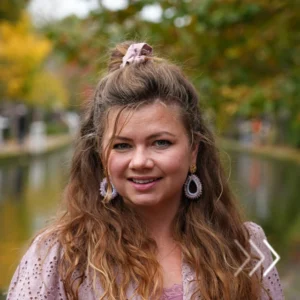First Dutch national PFAS blood test
First Dutch national PFAS blood test: banned carcinogenic PFAS type found in all participants

At the invitation of the Tegengif (Erase all Toxins) foundation, people from every province in the Netherlands had their blood tested for PFAS. It is the first time that a national PFAS blood test has been done. PFAS, including the now banned carcinogenic substance PFOA, were found in all thirteen participants. The blood test illustrates the PFAS problem: PFAS are hardly degradable and threaten health. Therefore, a ban on the discharge and production of all PFAS is necessary to prevent further health damage.
“With this small-scale signalling study, we want to show that PFAS are a problem for all of us and not just for the people who live around Chemours and 3M,” says Annelies den Boer, director of Tegengif. “People everywhere in the Netherlands ingest PFAS through food, drinking water, the air and consumer items they use every day. Because PFAS do not or hardly break down, we are very concerned about the health of people now and in the future. All participants in our blood test share their stories about their exposure to PFAS. We want to increase awareness about the ubiquity of PFAS and encourage politicians to take action.”
Jasmijn Blokland (NL), participant from the province of Zeeland, shares the concerns about the presence of PFAS. “There is no longer a place in the Netherlands where there are no dangerous substances in the air or in the water. And we also know that many PFAS have been found in drinking water. We live in the 21st century. Clean drinking water should be a basic right, right? Shouldn’t it be accessible to everyone? But that’s not the case. I find that very bizarre.”
Carcinogenic
PFAS is a collective name for thousands of man-made chemicals. The blood test shows that all participants have PFOA and PFOS in their blood, two PFAS types that have already been banned. Since the 1940s, PFOA has been used, among other things, in the production of Teflon, known from the non-stick pan; PFOS was used in, for example, fire-fighting foam. “Both substances are still present in the environment and that is why we keep ingesting them. That is very worrying,” says Den Boer.
“According to IARC, the World Health Organization’s International Agency for Research on Cancer, PFOA is a proven carcinogen, and PFOS is a possible carcinogen. These substances are bioaccumulative, meaning they build up in your body. PFOA and PFOS thus illustrate how serious and virtually irreversible the problem of PFAS pollution is. And how important it is to intervene now.”
National biomonitoring program
Tegengif and medical and environmental organizations have long been calling for a national biomonitoring system. This means that, following the example of neighbouring countries, blood, urine and breast milk in the Netherlands can also be examined for the presence of harmful chemicals such as PFAS.
Majorie van Duursen, professor of Environmental Health and Toxicology at VU Amsterdam, supports that call. “This small-scale research is an important signalling study that demonstrates the need for a structural, national biomonitoring program. It is crucial that the government regularly monitors which harmful chemicals Dutch citizens are exposed to so that the same government can take adequate measures to prevent possible health damage. It owes that to its citizens.”
PFAS ban

Geert Gabriëls (NL) from the province of Limburg found it exciting to participate in the PFAS blood test. “I was very nervous because I am someone who can really worry about their health and that of others.” Partly for this reason, as a Member of Parliament for Groen Links-PvdA, he is committed to a PFAS discharge ban. “A first step, because otherwise there would never be an incentive to produce PFAS-free products. If companies do not provide innovation themselves, for replacement products, then you need a government that says: we will discontinue this product. You have one year of phase-out time, but that’s it. Otherwise it will continue to be postponed, postponed, postponed – because of interests and lobbying power.”
The influence of large companies such as Chemours (PDF) on the political decision-making process makes joint action urgently necessary. “Tegengif and its European partner organizations believe that it is politicians’ turn to protect citizens against PFAS,” says Den Boer. “Currently a European ban on PFAS is in the making. Unfortunately, many exceptions are being advocated by companies that produce and use these non-degradable chemicals. That is unacceptable. Toxic-free production and consumption must become the norm.”
LINK:
For more background information about the blood test and the stories of the participants, visit www.tegengif.nl.


